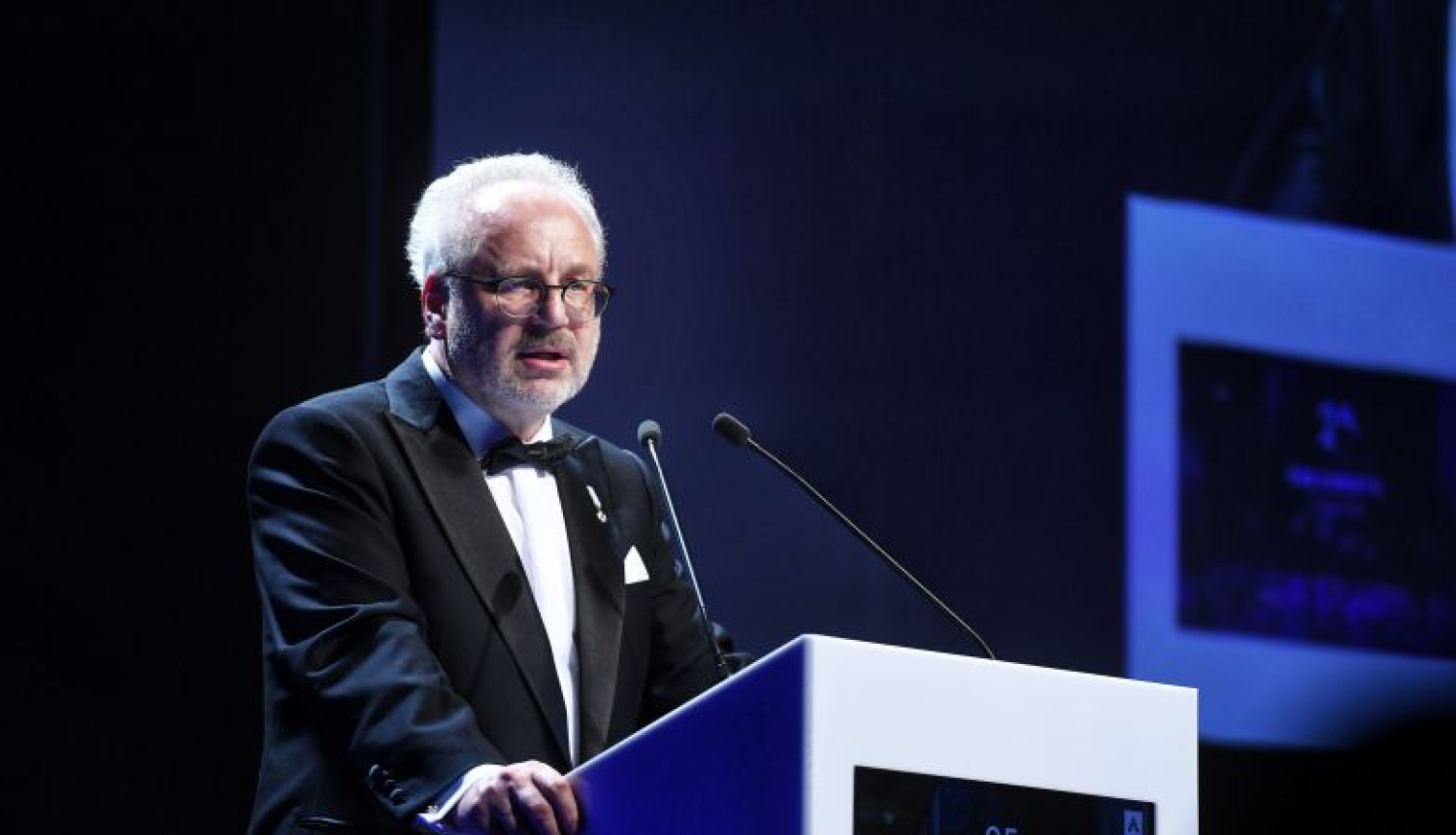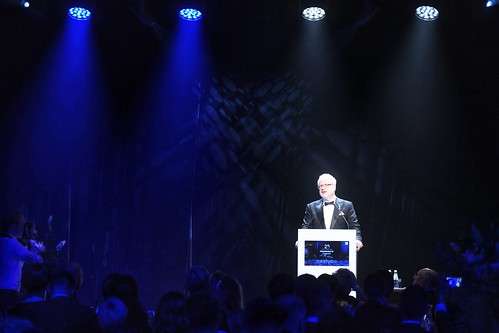Dear Mr President,
The school,
Dear spirituous rector of the school Mr Slokenbergs,
It is my great pleasure and honour to celebrate tonight with all of you the twenty fifth anniversary of the Stockholm School of Economics in Riga.
First, let me thank all of those here and around the Baltic Sea who brought the Stockholm School of Economics to Riga and who are working every day to ensure the excellence of the school.
The audience here and many others of alumni in the Baltic States and around the globe speak for itself: from the business sectors to governments, political parties and non-governmental organizations you have enriched your country and your society. You have achieved exactly what your founder Staffan Burenstam Linder was emphasizing: “Economics and business should be conducted with a responsibility to the wider community”.
Ladies and Gentlemen,
This night we shall celebrate. We shall revisit the memories and discuss the paths chosen. We shall praise the diligent work and cheer the success, but we also ought to look into the future. Like back in those turbulent years of early nineties it took a long-term vision and courageous people to succeed, today at the doorsteps of a great global turbulence called Fourth Industrial Revolution – we should be looking at our long-term goals and commitments.
The world is undergoing immense changes advanced by technologies and no country, no industry or individual is spared – yet we are just grasping the size and depth of the challenges our future holds.
Certainly, digital technologies have brought progress for humanity. The computational power that increases with the speed of Moore’s law each year cannot be comprehended any more by a human brain. Just a week ago [October 23] the Google company revealed its progress in advancing quantum computing program: their new quantum computer performed a calculation in 200 seconds that otherwise would have taken 10 000 years by the nowadays world’s fastest supercomputer.
Yes, we have not been living better any time in history that we do now. The quality of our life has increased as more functions are delegated to machines and as ever more processes are automatized. There is more food and less poverty in the world, life expectancy doubled over last hundred years and better health care has reduced child mortality, the literacy has led to better education, we fight less wars and enjoy more freedoms. The new technologies and innovation are a part of those achievements.
However, dear colleagues, the same technologies are accompanied with consequences, unintended and intended. Just to name a few: the social platforms were built to bring us closer together, yet our societies have become more polarised and radicalised, with our citizens locked into their own “bubbles”. Knowledge and information are more accessible than ever in history, yet the quality of the content has decreased dramatically and it has become difficult to navigate with certainty in a world where “nothing is true and everything is possible”. Technologies have opened new business opportunities to many, yet the gap is widening between the rich, who get richer fast and the poor unable to catch up.
The new virtual reality confronts our economic and social models, questions the future work and businesses, demands new skills and education. As technologies accelerate, so do the pressure grows on unresolved issues.
Most importantly the technologies are threatening our own freedoms and liberties. Modern democracies are built on common values accepted and protected by people. Civic society is the cornerstone. People entrust the institutions to act on their behalf for public good. They follow the governance via information intermediates, apply critical thinking and cast their vote in the next elections. In the era of modern technologies, this process is distorted and the key elements of liberal democracies are eroding. The modern information space is hard to navigate - it is much easier to seed doubts and tear down the trust than build informed consensus on any viable subject to society.
This is to say that the euphoria of the last two decades welcoming new technologies has suddenly disappeared. Still, these hurdles should not stop our progress, but rather have a deeper impact in our attitude and approach on how we build our future, starting with our own behaviour in the online and analogue world, to broader business approaches, the rule of law, societal tasks and renewed national institutions.
Ladies and Gentlemen,
It has been merely thirty years since the countries of Central and Eastern Europe, including, of course, Latvia, fought for their independence and re-established their right to live in free and open societies respecting the rule of law, freedom of speech and human rights.
Today liberal democracy and the free market economy are challenged again at a global scale. We have to unite our efforts not only to increase our wellbeing, but to retain our freedoms. As a small country Latvia has the advantage to act fast, to be creative, to explore and test solutions that would be more difficult in a much larger country.
Stockholm School of Economics in Riga has a role to play here. Through its twenty-five years the School has been a forward-thinking institution addressing new challenges with innovative solutions such as the Centre for Media Studies or course on “Artificial Intelligence”, to name a few. The question of whether a human will have control over technology or will technology rule humans gather importance from year to year.
Dear colleagues,
Dear alumni of the Stockholm School of Economics,
I wish you (as you are already graduated the school) to work together with the society, with each other, also together with the school in order to find the real solutions in this turbulent world. We should think about the future that will be more turbulent than it is today. And all of us should be more creative in order to find the solutions. I gratulate the Stockholm School of Economics here that the contribution of the school in this respect is very important, very considerable. I wish you to continue your way!
Thank you very much!





